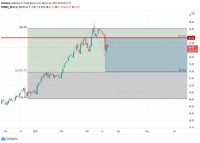|
The Untold Story New Twists In MF Global Mystery Focus on CFTCBy Mark Melin A delay in a Congressional report set to outline details surrounding MF Global findings was announced at the annual Futures Industry Association (FIA) conference just as insight regarding likely criminal behavior that damaged commodity market integrity moves into plain view. Over the past weeks Dan Roth, president of the National Futures Association, a primary front line regulator for the futures industry characterized the actions leading to missing MF Global funds as theft. Mr. Roth has pointed to the fact it matters not if the illegal funds were transferred to the benefit of an individual, as in the case of PFG, or if the illegal transfer of customer assets was due to meet operational needs of the company. Any such transfer is considered legally theft. In fact, could the argument be made that Russ Wassendorf, founder of PFG, had transferred customer funds to support ongoing company operations? If Mr. Corzine is allowed to transfer customer funds to cover firm operational expenses, is Mr. Wasdendorf allowed the same courtesy? While the primary focus is on the initial criminal acts leading up to the firm's bankruptcy, the potential cover-up that occurred afterwards, like Watergate, could be more troubling. Highlighted are two points of potential criminality: the initial phase, when illegal money transfers were hidden by false segregation reports; and the cover-up phase, where the CFTC was in possession of potentially criminal information and knowingly withheld this information. CFTC's inaction and withholding of critical information, particularly in court, resulted in significant damage to the integrity of the segregated account. The Initial Offense: The first phase of likely criminality has been documented by both regulators and industry participants:
The Cover-up Offense:
(For details and documentation, see the article below entitled "Who Knew What and When Did They Know It?) Delay in Congressional Report on MF Global Announced The keynote speaker at the FIA event was Congressman Randy Neugebauer. Congressman Neugebauer is Chairman of the House Financial Services Subcommittee on Oversight and Investigations, which held critical MF Global hearings over the past year. The goal of the Congressional report, like the Giddens Trustee report, is not to identity potential criminal behavior but rather spotlight areas of concern. It was set to release the report on the one year anniversary of the MF Global affair, but has been delayed. When he outlined a two week delay in releasing the report, the reason Congressman Randy Neugebauer (R-TX) gave was that new information / insight had recently became available. The congressman took three questions from the audience of 1,000+ derivatives industry professionals. Two of the questions, from journalists Francine McKenna and Dan Collins, centered sharply on known criminality in the MF Global affair that has rocked the integrity of regulated commodity markets more than any event in history. Ms. McKenna asked why the report was delayed until after the election, and got a surprising nugget of information in the answer when the Congressman noted that some parties would not cooperate with them. It is widely known that MF Global back office employee Edith O'Brien has refused to testify, and speculation is information regarding the management of the investigation may be slow to surface. Dan Collins also asked about leaks regarding the MF Global investigation. Of particular interest is before MF Global executives were even questioned by authorities, published reports claimed the "case was cold" and would likely not find criminal wrongdoing. "The MF Global affair is not complicated," was one message communicated to Congressman Neugebauer. "Are you aware of what occurred in court on November 1, 2011 and what the CFTC did NOT do?" was another question asked by this reporter, to which Congressman Neugebauer responded "MF Global had weak risk controls." Congressman Neugebauer is Chairman of the House Financial Services Subcommittee on Oversight and Investigations, which held critical MF Global hearings over the past year. "The significant point is MF Global willfully ignored CME's order not to transfer customer funds," notes attorney and Customer Commodity Collation President James Koutoulas. "If the transfers were proper, why wouldn't they just ask for CME Group's approval?" The CME Group was MF Global Designated Self Regulatory Organization (DRSO) and had front line regulatory authority over MF Global. If MF Global criminal activity stands, will a precedent will be set? In the future will the CFTC allow executives at a brokerage firm transfer customer assets to cover operational costs after a DRSO orders a halt to transfers? If a brokerage firm has "weak risk controls," is this is an appropriate excuse to explain the falsification of reports and reporting misleading information to court? These are question to ask. |
|
This article was published in Opalesque Futures Intelligence.
|





 RSS
RSS









